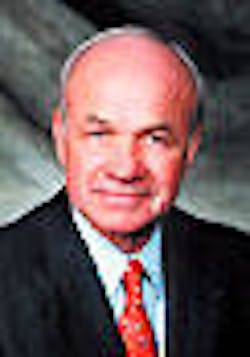Enron interim CEO named; EOTT on credit watch
The beleaguered Enron Corp. has named an interim CEO and chief restructuring officer within days of Kenneth Lay's Jan. 24 resignation, and EOTT Energy Partners LP reported credit-related problems stemming from the financial woes of its former parent.
In addition, the New York Stock Exchange on Jan. 15 delisted Enron's stock, which now trades through over the counter "pink sheets," a daily publication of stocks not carried in OTC newspaper listings of NASDAQ.
Last week, Enron named Stephen F. Cooper as interim CEO and chief restructuring officer. Cooper is the managing partner of Zolfo Cooper LLC, a New York corporate recovery and crisis management firm.
Cooper has more than 30 years experience leading companies through operational and financial reorganizations. Zolfo Cooper professionals will assist him with Enron's restructuring.
In addition, Enron has named members of the office of the chief executive, including Cooper; Jeff McMahon, who has been named president and chief operating officer; and Ray Bowen, who has been named executive vice-president and chief financial officer.
McMahon formerly was chief financial officer, and Bowen had been treasurer.
The energy giant filed for Chapter 11 bankruptcy protection on Dec. 2, 2001. The company's stock had been as high as $90/share in early 2001 but plummeted to single digits after a series of writedowns and losses and restated earnings in October 2001.
The company and its accountant, Arthur Andersen LLP, are both being questioned about complex off-balance-sheet, "special purpose" entities that came to light in October. Full payment of the notes was triggered by credit downgrades.
Lay's resignation
Lay resigned after being asked to step aside by the creditors' committee, which considered his involvement in lawsuits and congressional investigations to be a distraction from the company's reorganization. Lay remains on Enron's board.
"This was a decision the board and I reached in cooperation with our creditors' committee," said Lay in a statement. "I want to see Enron survive and for that to happen, we need someone at the helm who can focus 100% of his efforts on reorganizing the company."
Lay had been with Enron since 1985 and presided over its rise as the nation's largest energy trading company. He is named in dozens of lawsuits alleging securities fraud and malfeasance and also is involved in several congressional investigations regarding Enron.
EOTT
EOTT Energy Partners markets and transports crude oil. Although EOTT's general partner is a wholly owned subsidiary of Enron, neither EOTT Energy Partners nor its general partner, EOTT Energy Corp., is included in Enron's bankruptcy proceedings.
On Jan. 22, EOTT announced that 2001 earnings will fall short of expectations because of a combination of weak market conditions and special circumstances created by its storage and tolling contracts with Enron Gas Liquids Inc., a wholly owned subsidiary of Enron.
"The first weak quarter in 2 years for our marketing and transportation business comes at the worst possible time," said Dana Gibbs, EOTT president and CEO. "Although our uncommitted credit lines continue to meet our immediate working capital and supplier credit needs, cash requirements over the next several months are at a historical high, and Enron's bankruptcy has significantly impacted the partnership's financing alternatives."
The same day as EOTT's announcement, Moody's Investor Services placed EOTT's credit ratings under review for a possible downgrade. A day later, Standard & Poor's lowered its ratings on EOTT's senior unsecured debt and placed the rating on credit watch with negative implications.
The downgrade of debt reflects EOTT's use of short-term financing, which puts unsecured debtors at a disadvantage, S&P's said.
"To the extent that counterparties demand greater credit support to continue business with EOTT, the company may experience liquidity problems and higher costs that will affect its long-term credit profile. EOTT is also funding some higher-than-normal capital expenditures in the coming months that will exert even greater stress on its near to medium-term financial condition," S&P's said in a statement.

